If you’re like most women, you feel like one period starts just when the previous one has ended.
Having a period can be a real pain, especially if you suffer from terrible PMS and painful cramps each month.
Have you ever wondered how many periods a woman has in her lifetime?
The average woman has about 450–500 periods in her lifetime, which constitutes more than ten years of menstruation.
That is quite a bit of menstruating!
Here is an overview of some interesting facts about women and their periods.
Table of Contents
The average age that a girl starts her period
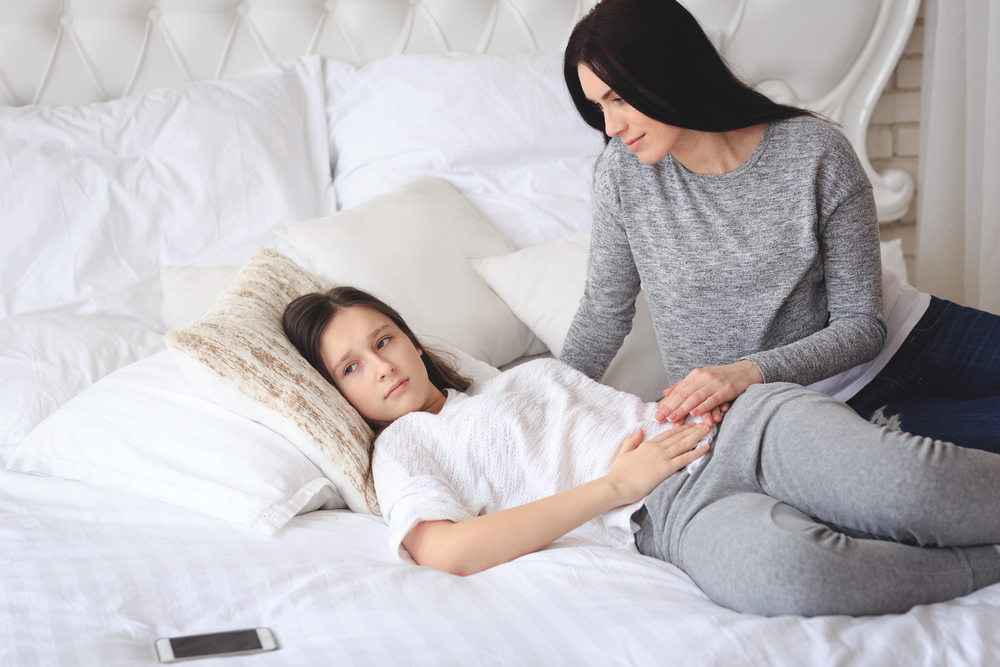
The average age for menarche, or a girl’s very first period, is about 12 years old, although some girls start as young as eight years old, while others don’t start until they’re closer to 15 or even 16.
It usually takes several years after menarche for a girl’s periods to regulate and start to come monthly, and up until then, they may be sporadic.
Even though menarche signifies that a girl is technically ovulating, this in no way means that her body is prepared for conceiving and giving birth. It could take many more years for a girl’s body to mature and be ready to handle having a child.
Why do some girls start their periods earlier than in the past?
While the average age that a girl starts her period is 12, girls have been starting their periods earlier and earlier over the past decade or so.
One explanation for this is the fact that, on average, girls weigh more than they did in the past and this affects estrogen levels.
Another explanation is that there are hormones in the meat and dairy products that we feed our children, which can accelerate the start of a girl’s menstrual cycle.
Menstrual cups are rapidly replacing pads and tampons
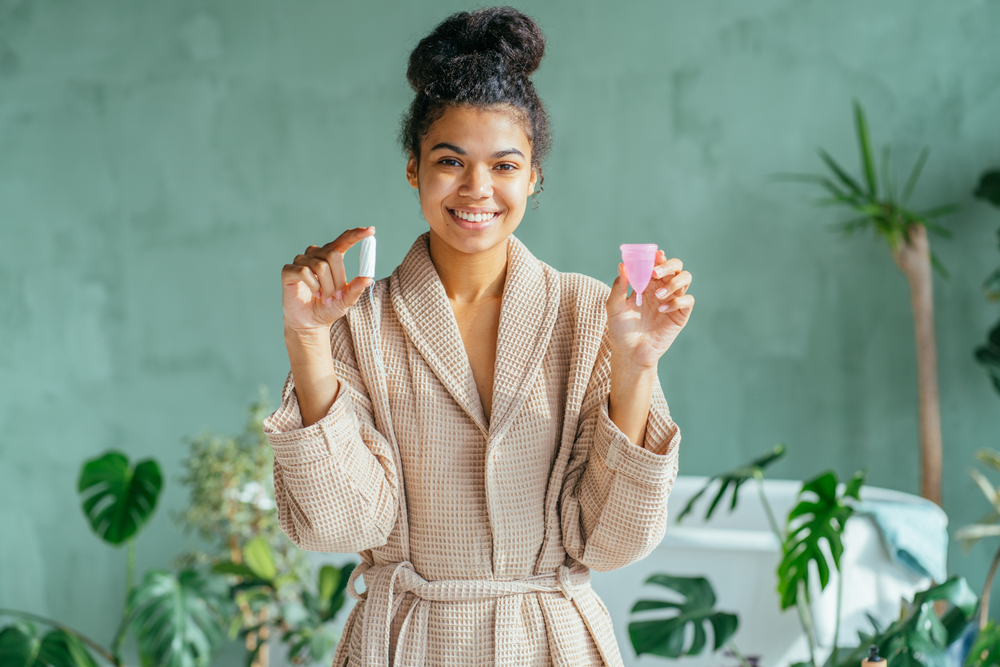
Menstrual cups are disposable or reusable cup-like devices that can easily fit inside the vagina and collect menstrual fluid.
Menstrual cups, which were first introduced in the 1930s, are becoming increasingly popular these days.
If you check the menstrual product aisle at your favorite store, you will notice several different types and brands of menstrual cups.
What’s so great about menstrual cups?
One reason for the growing popularity of menstrual cups is the fact that a woman can insert one and almost forget that she’s on her period for a short while.
Unlike pads, menstrual cups prevent a woman from feeling the flow of her menstrual cycle, which can be a nice change if you’ve been wearing pads up until now.
Some menstrual cups can hold up to 12 hours’ worth of fluid, depending on a woman’s flow, which is significantly better than changing a pad every 3–4 hours.
Are menstrual cups intimidating?
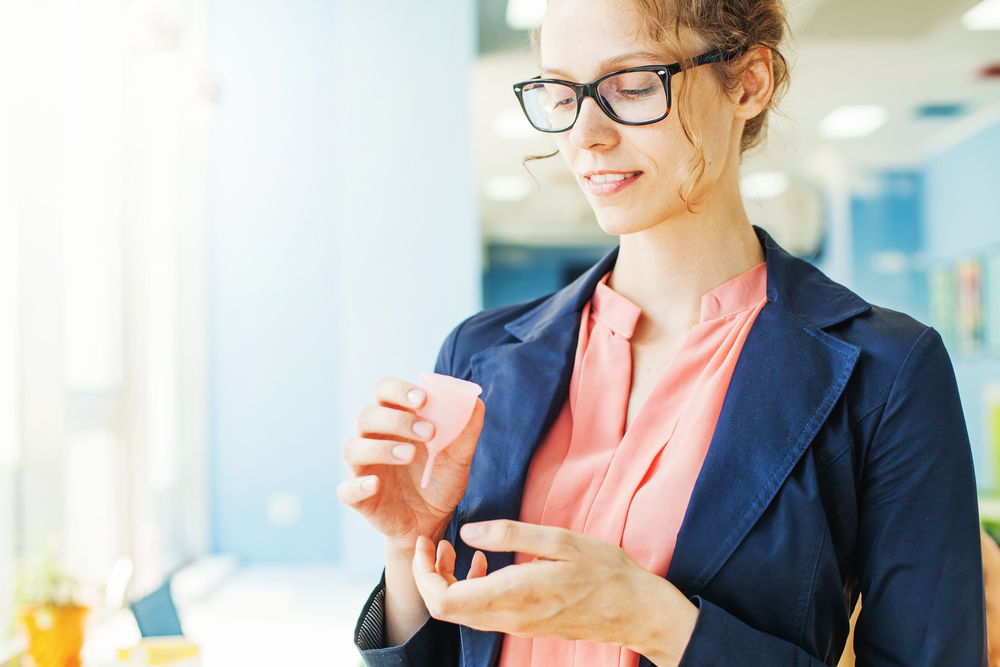
First-time users of menstrual cups will likely be very intimidated initially, but there is no need to be.
Although there is a learning curve when it comes to properly inserting the cup, many women love their cups after they become accustomed to wearing them.
Many menstrual cup wearers also enjoy the fact that, depending on the type of cup you choose, you’re able to engage in sex with your partner without the mess.
What about period panties?
Period panties are another alternate menstrual product and are worn like regular panties during “that” time of the month.
Manufacturers of some of these products state that period panties collect a certain amount of fluid, so you don’t have to worry about wearing other menstrual products like tampons or pads.
However, some women only feel comfortable wearing these special panties as a backup to their regular protection to help minimize leaks.
Are period panties like wearing a diaper?
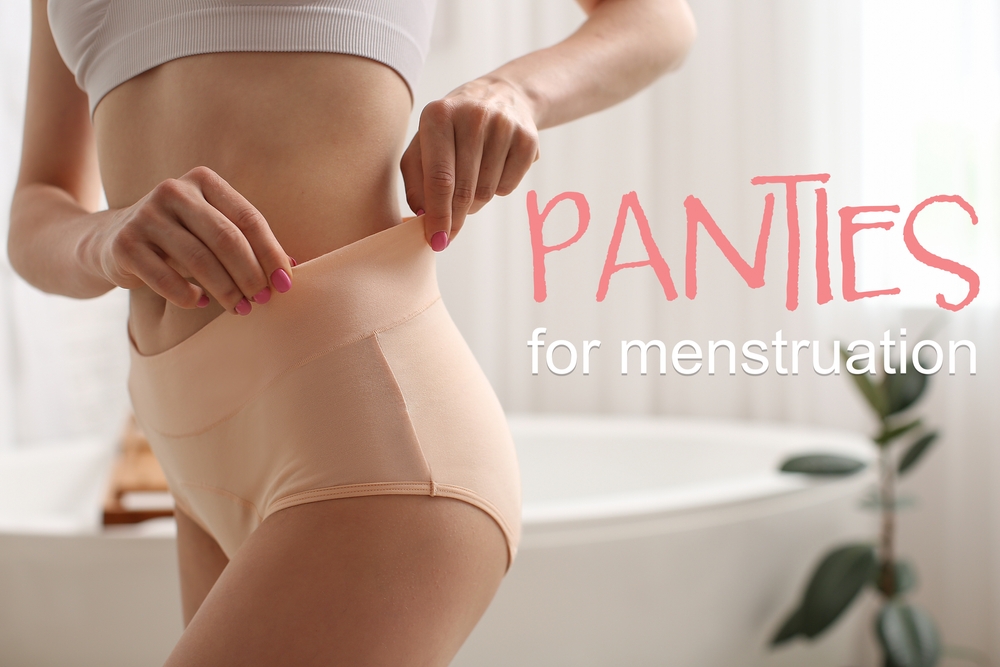
Just like other menstrual products, there are different brands and styles of period panties.
Some are very similar to typical underwear, both in size and thickness, while others are, in fact, thick and bulky like adult diapers.
Some women opt for wearing the thick and bulky kind only at night to prevent damaging their pajamas and sheets with menstrual fluid, while others even wear them during the day if they bleed heavily.
Sex during a woman’s period can have benefits
Many couples would never think of having sex during a woman’s period, but it can be an ideal time of the month to become intimate.
Not only can the endorphins of experiencing an orgasm during your period alleviate menstrual cramps, but many women can more easily achieve intense orgasms during this time of the month.
This is due to the fact that there is increased blood flow to the pelvic region, which leads to enhanced sensitivity.
Can I avoid pregnancy by having sex during my period?

While most women are fine when it comes to having sex during their periods, especially if they know their bodies and when their usual ovulation time is, other women still need to be careful during this time.
If a woman has a short cycle, then she may ovulate on day eight of her cycle, for instance.
Because sperm can live for up to five days in a woman’s reproductive tract, a woman could be testing her luck if she has unprotected sex during her period.
Menstrual fluid consists of more than just blood
When many people think about a woman’s menstrual cycle, they think about the blood that the uterus is shedding.
While the uterus is shedding blood from its lining during your period, there is also endometrial tissue being shed as well as cervical mucus.
While this may all sound gross, it’s a normal part of being a woman, and unless a woman becomes pregnant and has a break for nine or more months, she will continue to menstruate each month.
Some animals have menstrual cycles like humans

Believe it or not, there are some female animals that have menstrual cycles just like humans.
These animals include the elephant shrew, bats, the spiny mouse, gorillas, orangutans, and other apes.
What’s the average age for menopause?
The average age for a woman to experience menopause is between 45 and 55, while some women undergo menopause sooner, and some later.
Menopause doesn’t begin abruptly, and it can sometimes take as long as 10 years for the entire process to be completed.
First, a woman will notice that her periods are becoming shorter, and then she will even miss some periods until they stop altogether.
How does a woman know when she’s gone through menopause?
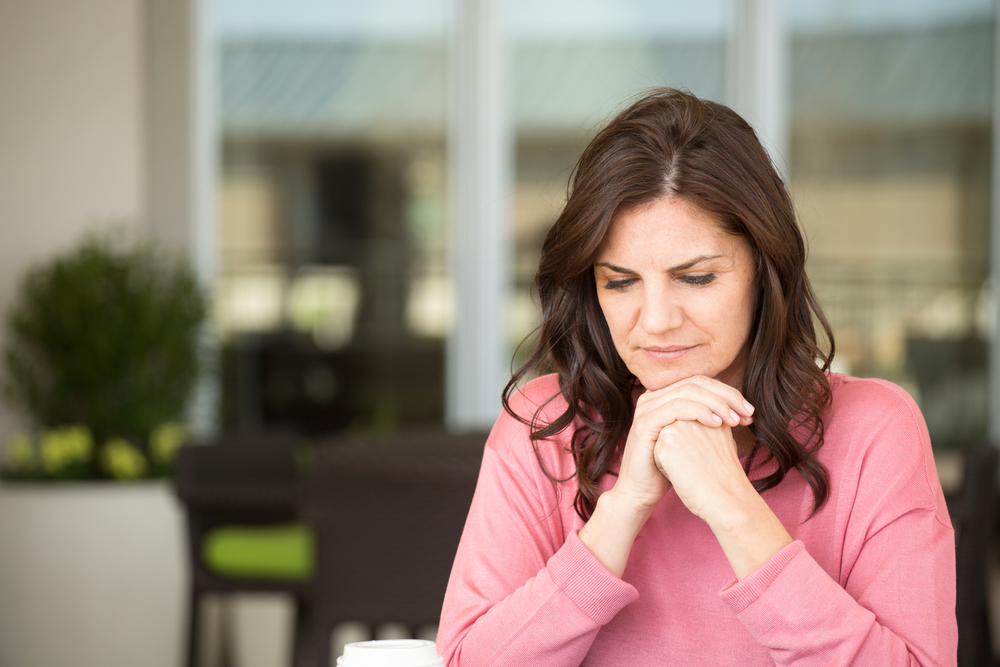
Most women will know they’ve gone through menopause once they have gone one full year without a menstrual period.
Doctors are able to test hormone levels to confirm this, but if a woman has not menstruated in over a year, then she can be pretty sure she’s done with periods.
There are prescription and all-natural products that can alleviate the many discomforts associated with menopause, but most women come through the transition relatively unscathed.
Can a woman get pregnant while going through menopause?
Yes, a woman can become pregnant while going through menopause.
Again, it takes approximately ten years to completely go through the entire process of menopause.
During that time, a woman will still menstruate, even if not regularly, which means that she will also still ovulate from time to time, so she can become pregnant.
Is every woman supposed to have a 28-day cycle?
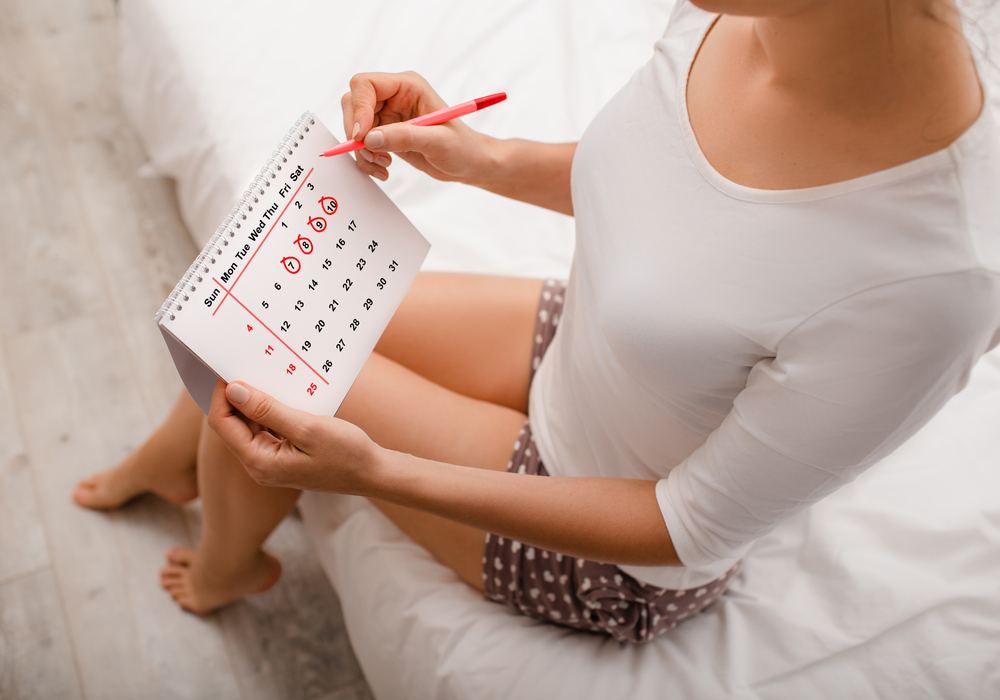
While many textbooks state that women have 28-day menstrual cycles and ovulate on day 14, this is not necessarily the case.
Cycle lengths can vary from woman to woman and even from cycle to cycle.
Some women do have 28-day cycles, but others may have 30-day or 32-day cycles, all of which are normal.
Not all women have normal menstrual cycles, though, and extremely long (or short) cycles can lead to future fertility problems for some women.
At what age is a woman the most fertile?
Most women reach their peak fertility between the ages of 17–29, and fertility dramatically decreases after the age of 35 in most women.
This doesn’t mean that women over 35 can’t conceive, but it simply means that they may experience increased difficulty with conceiving.
More and more women are waiting until after they’ve established their careers to begin having children, causing many women 40 and older to attempt to become pregnant for the first time.
Infertility and its treatments
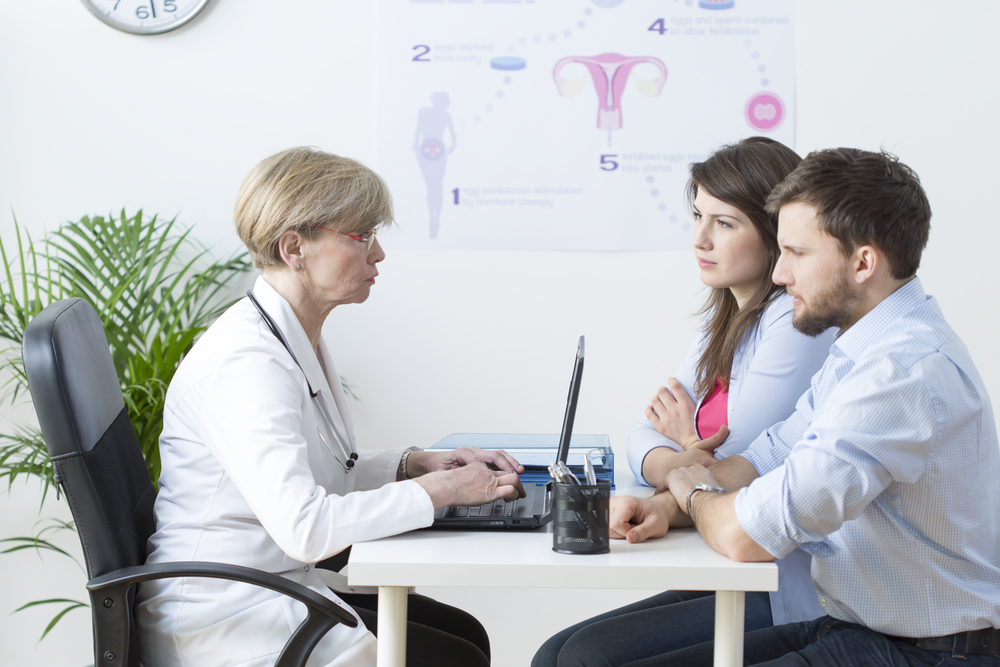
For women over age 40 who want to become pregnant, as well as younger women who may experience difficulty conceiving or sustaining a pregnancy, there are specialists who can provide assistance.
From fertility medications to IVF and everything in-between, more and more women are having babies now who may not have been able to in the past.
This is thanks to the many advancements in reproductive medicine and the doctors that take the time to provide couples with assistance with having babies.
As you can see, there are many interesting facts about the menstrual cycle.
The menstrual cycle is a very complex biological process that occurs in a woman’s body and makes it possible for her to have children.




